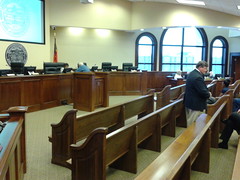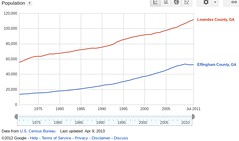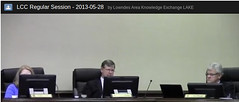 I’ve thanked Bubba McDonald for
being serious about solar.
However, 500 MW by Georgia Power in several years is nowhere
near enough, when
New Jersey has 1,000 MW already installed.
What we need in south Georgia is distributed solar power
for local jobs and direct reduction of electricity bills.
Making
a solar monopoly as in HB 657 wouldn’t solve that problem;
it would actually hinder
a real distributed solution.
Instead we need to reform that antique 1973 Territorial Electric Service Act
to enable financing for distributed solar.
I’ve thanked Bubba McDonald for
being serious about solar.
However, 500 MW by Georgia Power in several years is nowhere
near enough, when
New Jersey has 1,000 MW already installed.
What we need in south Georgia is distributed solar power
for local jobs and direct reduction of electricity bills.
Making
a solar monopoly as in HB 657 wouldn’t solve that problem;
it would actually hinder
a real distributed solution.
Instead we need to reform that antique 1973 Territorial Electric Service Act
to enable financing for distributed solar.
Jim Galloway wrote for the AJC yesterday, GOP revolutionaries push Georgia Power to embrace solar energy,
Lauren “Bubba” McDonald Jr. has spent more than four decades in and around the state Capitol. That fact alone should automatically disqualify him as a rabid revolutionary.
And yet here he is, attempting to force real, radical change upon one of this state’s most staid and revered institutions. McDonald is the leader of a new and very Republican effort to require that Georgia Power give solar energy a chance.
Continue reading





























